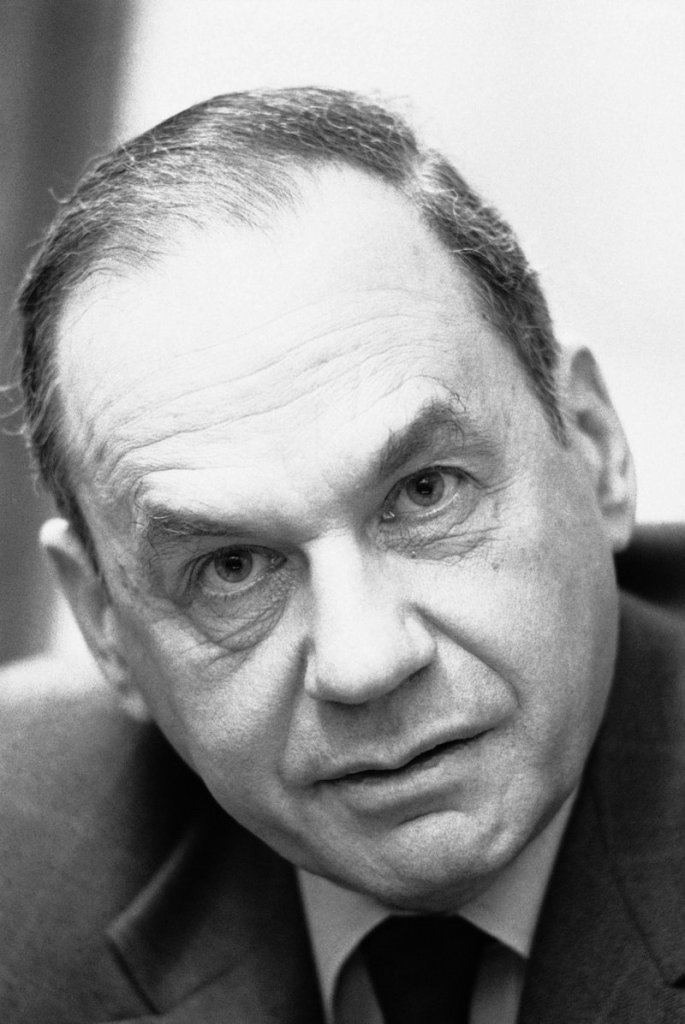Edwin Newman, whose understated delivery of the news was a mainstay of NBC broadcasts for more than 30 years, and who cultivated a second career as a caretaker of proper grammar and usage, died Aug. 13 of pneumonia in Oxford, England, where he had lived since 2007. He was 91.
The Associated Press said the announcement was delayed to give his family time to mourn.
With his balding, slightly rumpled appearance, Newman was hardly cast in the classic mold of the chirpy, bright-eyed broadcaster. Instead, he brought gravity, wit and a depth of understanding to television, whether as an interviewer, a substitute anchor, a host of the “Today” show or the narrator of documentaries.
Newman, who spent more than a decade as a foreign correspondent, became known for his unflappable manner on the air, embellishing broadcasts with knowledge from his well-furnished mind. He gained his quiet sense of authority from his command of the language and a sense of cultural history that reached back earlier than the advent of the color television camera.
“The key to Edwin Newman’s success is the triumph of content over presentation,” former “NBC Nightly News” anchor John Chancellor said when Newman retired in 1984. “What he says is more interesting to him than how he says it. If he has nothing to say, he doesn’t say anything, which is rare in television and in life.”
In 1963, Newman announced the assassination of President John F. Kennedy on NBC radio. Five years later, he anchored the network’s television coverage of the slayings of the Rev. Martin Luther King Jr. and Robert Kennedy. When Kennedy’s funeral train took eight hours to reach its destination instead of four, Newman improvised his coverage, citing historical facts pertinent to every stop along the way.
During the 1976 presidential campaign between Gerald R. Ford and Jimmy Carter, Newman was the moderator of the first presidential debate in 16 years. In 1984, he moderated a debate between President Ronald Reagan and Democratic challenger Walter Mondale. As time ran out, Newman stopped Reagan in mid-sentence, or “in mid-piety,” as Washington Post television critic Tom Shales put it.
“Reagan had launched into an ode to American youth,” Shales wrote, “when Newman, according to the rules set down by the League of Women Voters, cut him off. The president never got to his shining city on a hill.”
One of the most versatile broadcasters of his generation, Newman was comfortable as a correspondent, studio anchor or narrator of investigative documentaries, which used to be a staple of network news. He was an acerbic presence on the floor of political conventions, an occasional moderator of “Meet the Press” and a frequent host of NBC’s “Today” show.
Newman’s most memorable appearance on “Today” came in 1971, when he banished comedian George Jessel from the studio. In a rambling interview, the 73-year-old Jessel likened The Washington Post and New York Times to Pravda, the official Soviet newspaper.
“You are a guest here,” a steely Newman told Jessel. “It is not the kind of thing one tosses off. One does not accuse newspapers of being Communist, which you have just done.”
Peeved by what he considered sloppy and pretentious use of the English language, Newman published “Strictly Speaking: Will America Be the Death of English?” in 1974. The humorous but pointed book became a No. 1 bestseller and was followed by “A Civil Tongue” in 1976, securing Newman’s reputation as a guardian of grammar, usage and linguistic good manners.
Copy the Story Link
Send questions/comments to the editors.



Success. Please wait for the page to reload. If the page does not reload within 5 seconds, please refresh the page.
Enter your email and password to access comments.
Hi, to comment on stories you must . This profile is in addition to your subscription and website login.
Already have a commenting profile? .
Invalid username/password.
Please check your email to confirm and complete your registration.
Only subscribers are eligible to post comments. Please subscribe or login first for digital access. Here’s why.
Use the form below to reset your password. When you've submitted your account email, we will send an email with a reset code.